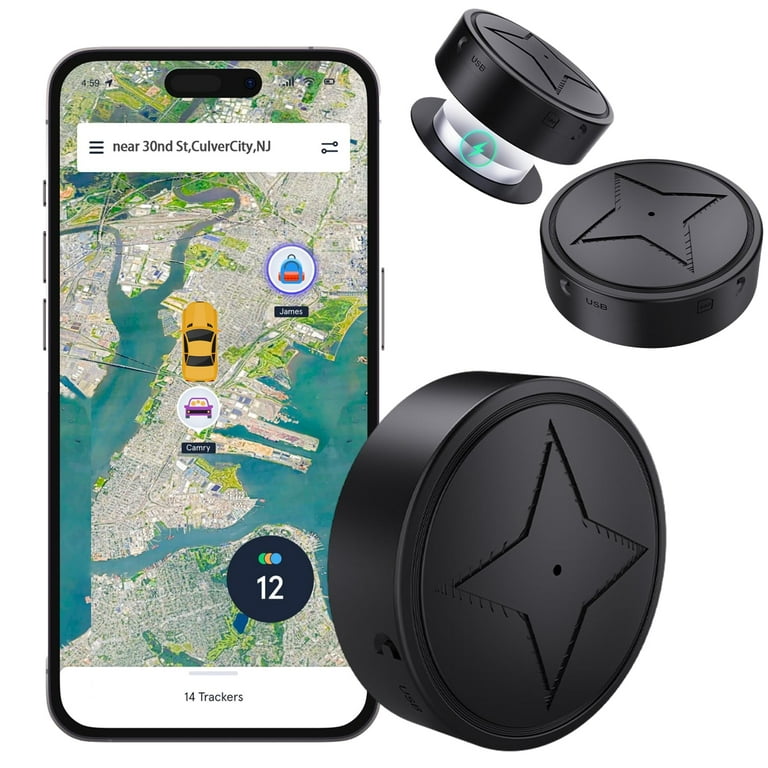Navigating the Future of GPS Monitoring: Developments, Obstacles, and Opportunities Ahead
As we stand at the crossroads of societal ramifications and technological advancements, the landscape of General practitioner tracking is positioned for a transformative journey in advance. With great technology comes great duty, as data personal privacy issues loom large and safety and security obstacles in General practitioner monitoring raise significant questions regarding safeguarding delicate information.
Development of GPS Modern Technology
The Evolution of GPS Innovation has been marked by considerable improvements in precision, coverage, and effectiveness for many years. At first created for armed forces objectives, GPS modern technology has developed to end up being a common device in various fields, consisting of transportation, logistics, farming, and individual navigation. Early GPS systems were defined by minimal insurance coverage, lower precision, and bulkier hardware needs. Nonetheless, with recurring technological advancements, GPS has actually transitioned to much more reliable and specific systems that offer worldwide coverage and enhanced accuracy.
One key milestone in the development of GPS technology was the development of Careful Schedule (SA) in the 1990s, which deliberately weakened the precision of noncombatant General practitioner signals. As GPS modern technology proceeds to progress, we can expect more renovations in insurance coverage, effectiveness, and precision, opening up brand-new possibilities for technology and applications across numerous industries.
Real-Time Tracking Developments
Structure on the improvements in GPS innovation that have actually reinvented accuracy and insurance coverage, real-time monitoring has become a crucial location of advancement with extensive ramifications throughout various industries. Real-time tracking developments allow organizations and companies to check cars, employees, and properties immediately, giving valuable insights for decision-making processes - gps tracking. By leveraging real-time information, companies can boost operational performance, enhance client service, and ensure the safety and protection of their assets
Among the crucial improvements in real-time monitoring is the assimilation of expert system and maker learning formulas, which enable anticipating analytics and anomaly detection. These capabilities permit aggressive upkeep organizing, path optimization, and danger mitigation methods. In addition, the advancement of real-time monitoring systems has actually resulted in the development of adjustable dashboards and mobile applications, empowering users to access essential details anytime, anywhere.
Data Privacy Worries

Information privacy worries encompass various facets, consisting of the storage space, sharing, and retention of place information. Organizations should carry out durable safety measures to safeguard general practitioner tracking data from cyber hazards and information violations. Clear policies relating to data collection methods and the function of monitoring are vital to build trust fund with customers and make sure conformity with data protection laws.

Protection Difficulties in GPS Tracking
Dealing with data privacy concerns in GPS monitoring is elaborately connected to minimizing the security challenges Full Report that emerge from prospective vulnerabilities in the innovation. One of the main security obstacles in GPS tracking is the risk of unapproved access to delicate place website link data - gps tracking. Cyberpunks can obstruct GPS signals, manipulate area info, or also track individuals without their approval. This not only gets into individual privacy yet also postures serious safety threats.

An additional safety and security challenge is the potential for jamming or spoofing GPS signals. By relaying false signals or interfering with genuine ones, harmful stars can deceive GPS receivers and manipulate place data. This postures threats not only for individual users but likewise for governmental and army applications that depend on accurate placing info. Executing robust encryption, verification measures, and signal confirmation protocols are critical steps in dealing with these security obstacles in GPS tracking.
Arising Opportunities in the Industry
The burgeoning area of GPS monitoring modern technology presents a myriad of encouraging possibilities for market growth and technology. One key possibility lies in the growth of GPS tracking applications past typical fields. Industries such as logistics, transport, and fleet monitoring have actually been early adopters of general practitioner technology. Nonetheless, emerging chances are now arising in areas like health care, agriculture, and environmental tracking. For example, GPS tracking can reinvent patient care by making it possible for remote monitoring of vital indicators and guaranteeing timely medical aid. In farming, GPS modern technology can optimize crop management practices and boost overall yield. Ecological tracking can benefit from GPS monitoring by allowing real-time data collection for climate research and preservation efforts.
One more significant opportunity in the GPS tracking market is the combination of innovative analytics and synthetic knowledge. By leveraging these modern technologies, businesses can get important understandings from GPS information to boost functional effectiveness, enhance Full Article decision-making processes, and offer customized services to customers. Additionally, the raising demand for connected devices and IoT remedies presents a ripe opportunity for general practitioner tracking firms to expand their offerings and develop ingenious remedies that satisfy a much more connected globe. By maximizing these arising chances, GPS tracking companies can place themselves for sustained development and success in the vibrant landscape of the industry.
Final Thought
In final thought, the future of General practitioner monitoring is noted by constant evolution and development in modern technology. As the sector moves ahead, browsing these obstacles will certainly be essential to make sure the continued development and success of General practitioner monitoring innovation.
With fantastic advancement comes excellent obligation, as information privacy problems impend big and protection challenges in GPS tracking raise essential inquiries concerning guarding delicate details.With the fast spreading of GPS monitoring innovation in numerous sectors, resolving information personal privacy issues has actually ended up being an essential necessary for both consumers and organizations alike. The collection of location data through General practitioner monitoring increases significant personal privacy problems, as it allows the surveillance of people' behaviors and activities. Organizations utilizing GPS tracking need to focus on protecting this information to protect against unauthorized access or misuse that might compromise people' personal privacy rights.
Organizations should carry out durable safety procedures to secure General practitioner tracking information from cyber risks and information violations.